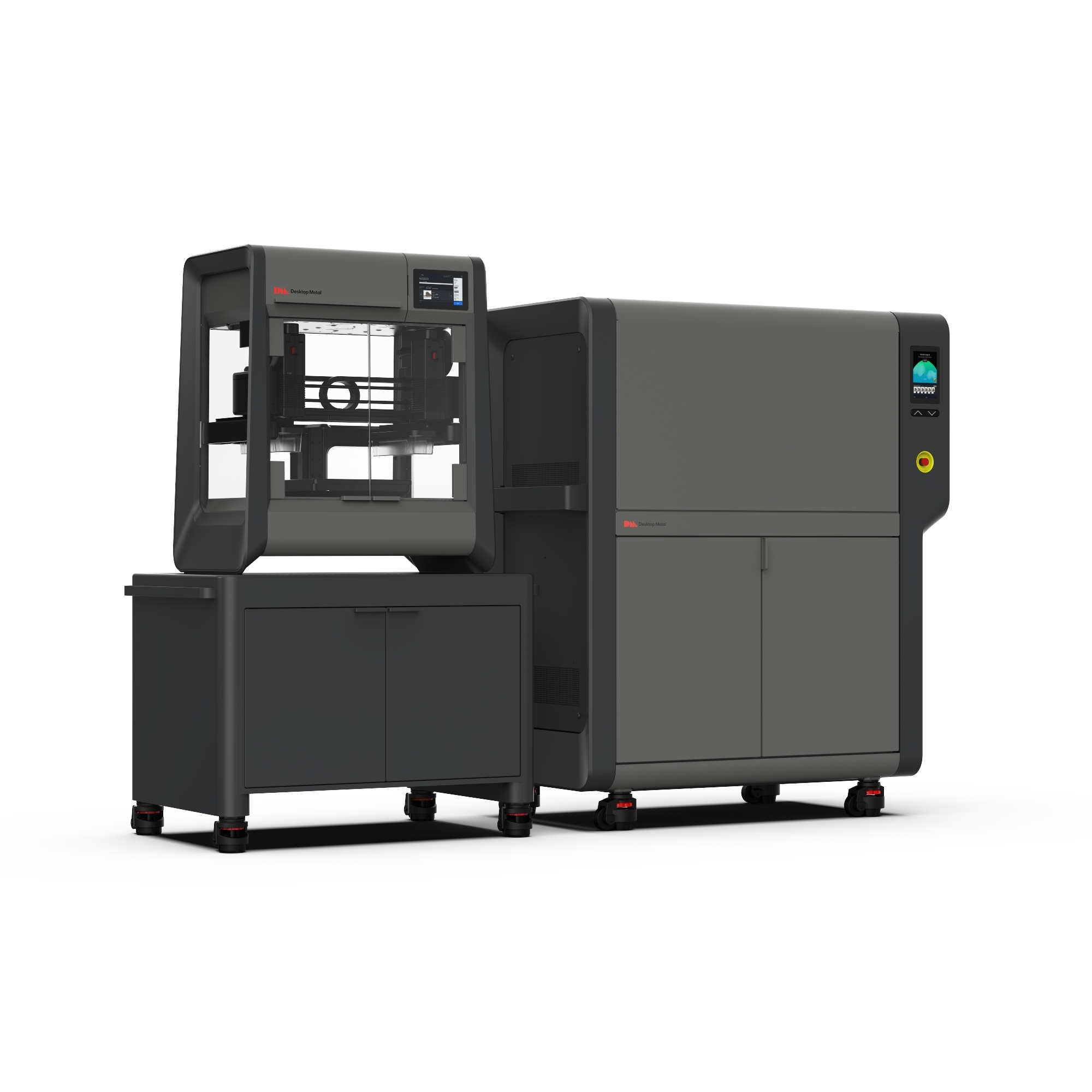Aerospace applications gain material benefits from titanium alloys used in 3D printing applications.
Additive manufacturing specialist, Desktop Metal has now qualified the use of titanium alloy Ti-6Al-4V (Ti64) for the company’s metal 3D printing platform, enabling high-performance metal parts to be produced in low volumes for pre-production and end use applications.
Ti64 is the most widely used titanium alloy and is characterised by its high tensile strength, corrosion resistance and biocompatibility. With a high strength-to-weight ratio, Ti64 is considered an ideal material for high-performance production applications in industries such as aerospace and defence. In addition, its biocompatibility makes it particularly desirable in medical applications, such as with surgical devices and implants.
The Desktop Metal Studio System 2 produces Ti64 with exceptional mechanical properties. Tensile properties include 730 MPa yield strength, 845 MPa ultimate tensile strength and 17 percent elongation. These properties exceed those set by ASTM F2885-17 standards for metal injection moulded surgical implant applications.
According to Jonah Myerberg od Desktop Metal, titanium has been a challenging material for bound metal 3D printing because it is both extremely reactive in powder form and difficult to sinter. Commercialising Ti64 for 3D printing has opened the door to more accessible production of high-performance titanium parts.
One user of the material is Privateer Space, whose co-founder Steve Wozniak says, “3D printing with titanium is incredibly valuable in industries like aerospace because of the material’s ability to support complex and lightweight designs.”
He goes on to say that the technology is a differentiator in helping companies to accelerate innovations in space and keep the sector accessible for future generations.
Office-Friendly Metal 3D Printing
The Studio System 2 from Desktop Metal provides a two-step process, which eliminates loose powders and dangerous lasers commonly associated with metal 3D printing. Consisting of a printer and furnace, the Studio System 2 simplifies in-house low volume production of a wide range of complex geometries with outstanding surface finish and high-performance mechanical properties.
It is compatible with 316L stainless steel and Ti64 as well as 17-4PH stainless steel, 4140 low-alloy steel, H13 tool steel and copper.
Three examples of applications that the T164 alloy has been successfully use for are as a telescope focus ring, a drone coupling and a fuel injector nozzle.
Focus Rings – The material enabled the telescope focus system to be lighter weight and thereby use smaller motors, reducing the wear on the components and overall cost of assembly. Since the rings are produced in low volumes, the use of 3D printing avoided expensive tooling costs.
Drone Coupling – Used for fastening two assemblies together on a drone frame, weight is a critical factor in the coupling design. Producing it in titanium enables significant weight reduction while maintaining the structural integrity required for the drone.
Fuel Injector Nozzle – Fuel injector nozzles are critical for safe and reliable operations in the aerospace industry, where they are responsible for driving fuel into a burner for propulsion. This part features internal channels that can result in enhanced burner performance but would be impossible to create using conventional manufacturing processes. Titanium is an essential material for this application as the nozzle needs to be able to withstand extreme temperatures and pressures while remaining lightweight.

